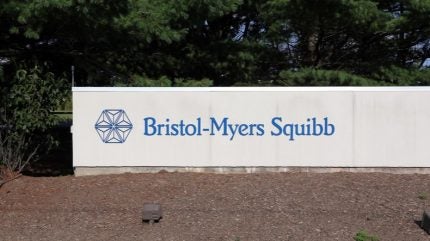
Bristol Myers Squibb’s (BMS) lung cancer monoclonal antibody BMS-986012 has nearly doubled overall survival (OS) in patients with extensive-stage small cell lung cancer (ES-SCLC) and brain metastases in a Phase II trial.
The data, shared at the 2024 ESMO conference in Barcelona, taking place from 13-17 September. The ongoing randomised, open-label study (NCT04702880) is comparing BMS-986012, Opdivo (nivolumab) and chemotherapy (carboplatin and etoposide) versus Opdivo plus chemotherapy alone as a first-line treatment in 120 patients with ES-SCLC.

Discover B2B Marketing That Performs
Combine business intelligence and editorial excellence to reach engaged professionals across 36 leading media platforms.
In a subgroup of patients with brain metastases, those on the treatment arm reached an OS of 16.3 months compared to 8.7 months in the active control group.
Presenting the findings at the conference, one of the trial investigators Dr. Ewa Kalinka, shared insight into subgroups of patients with or without brain metastases at the Łódź site, monitored as part of an ad-hoc exploratory endpoint dedicated to OS by baseline brain metastases status.
“74% of patients with brain metastases were found to survive 12 months, with a median OS of more than 16 months, while in the control arm, the [survival] rate was only 34% at 12 months with a median OS of eight months,” Kalinka said.
“Patients without brain metastases had a median overall survival of 15.5 months, but what was very interesting is that they reached a plateau at about 50% surviving,” Kalinka added.

US Tariffs are shifting - will you react or anticipate?
Don’t let policy changes catch you off guard. Stay proactive with real-time data and expert analysis.
By GlobalDataThe primary endpoints of the study were safety and progression-free survival (PFS). Secondary endpoints included OS. The PFS of a median of 5.8 months in the treatment arm was statistically insignificant versus 5.2 months in the control arm. Median OS was 15.6 months in the overall BMS-986012 cohort versus 11.4 months in the control arm.
Kalinka also said that the overall response rate (ORR) was higher in the BMS-986012 arm, with more patients achieving complete response (CR) and partial response (PR). In addition, she said the median duration of response (DoR) was longer at 6.4 months versus 4.5 months in the control arm.
BMS-986012 is a monoclonal antibody which binds to ganglioside fucosyl-GM1, sphingolipid monosialoganglioside and tumour-associated antigen (TAA) which is overexpressed on the surface of many cancer cells, especially SCLC cells.





